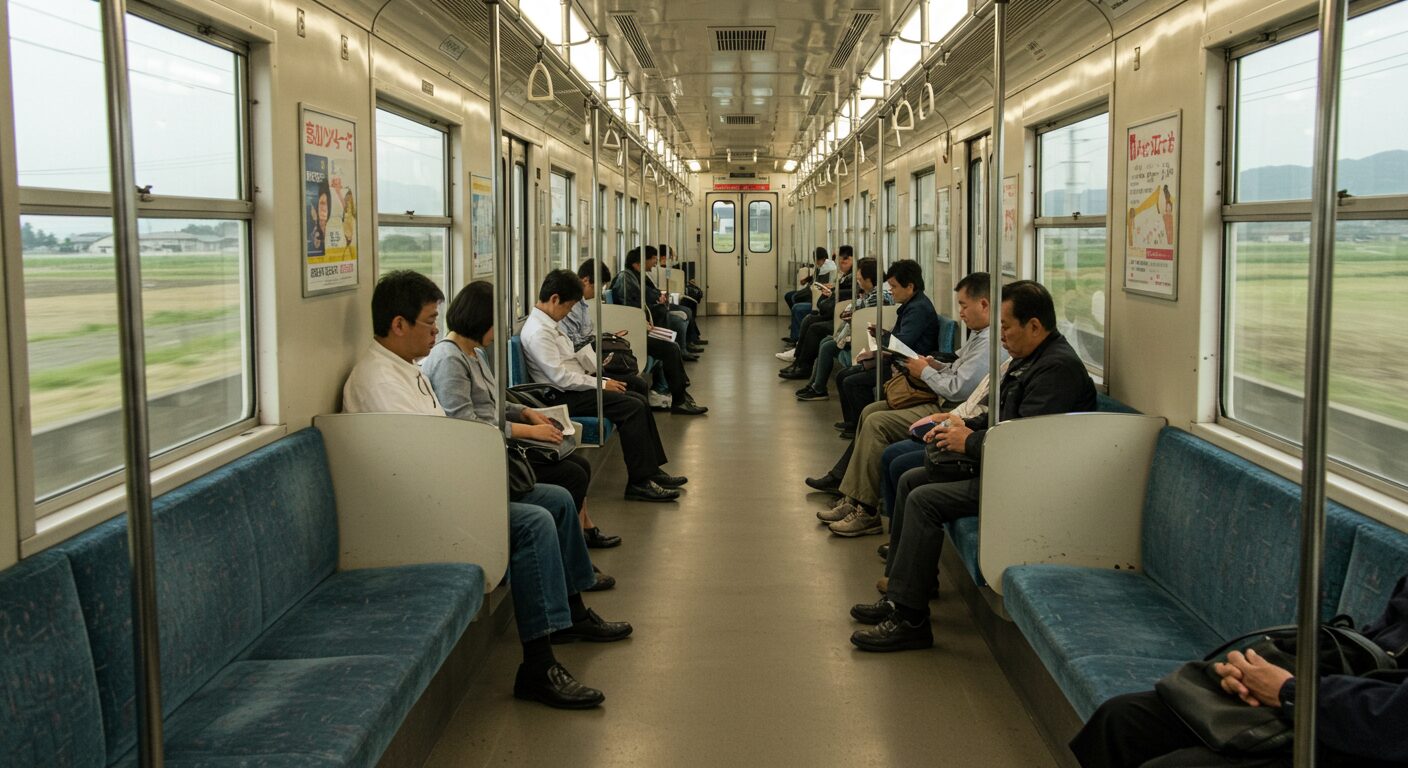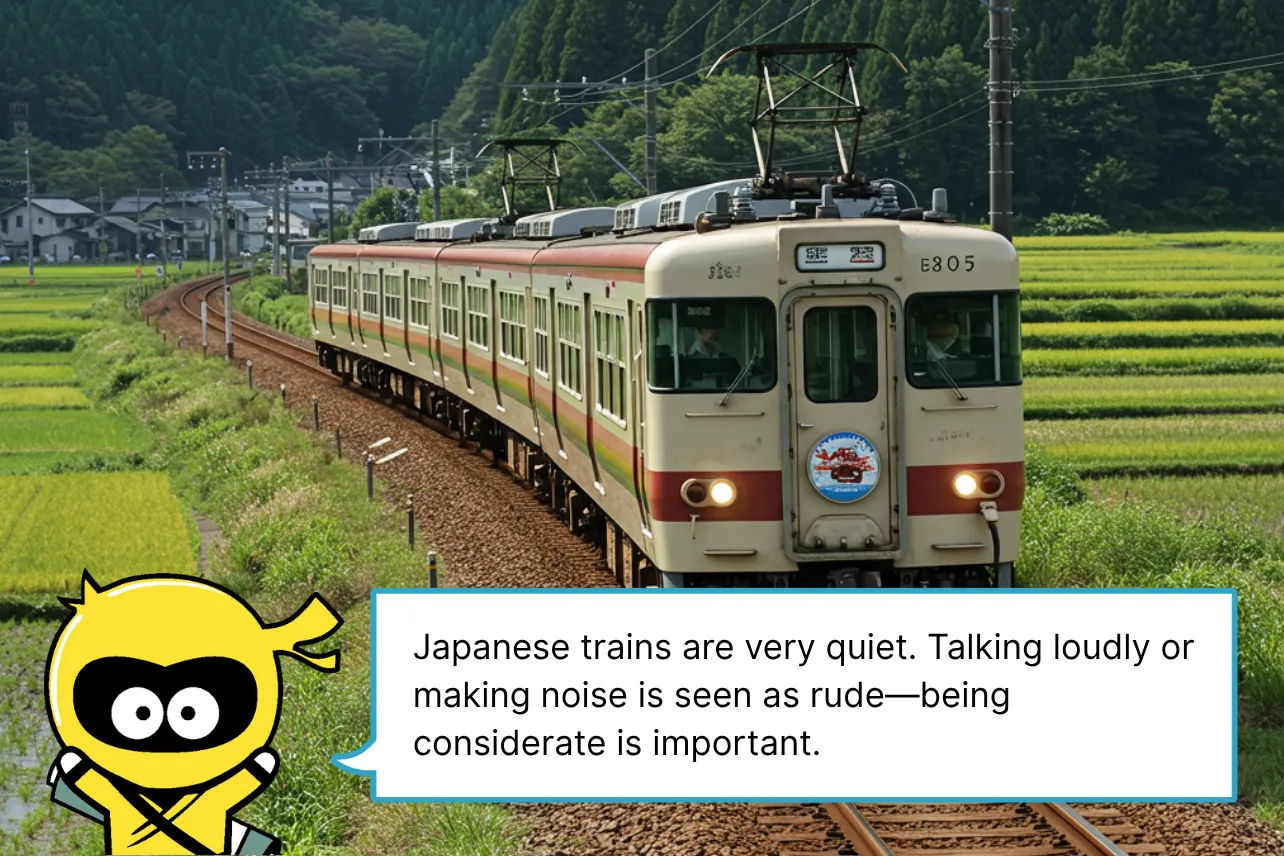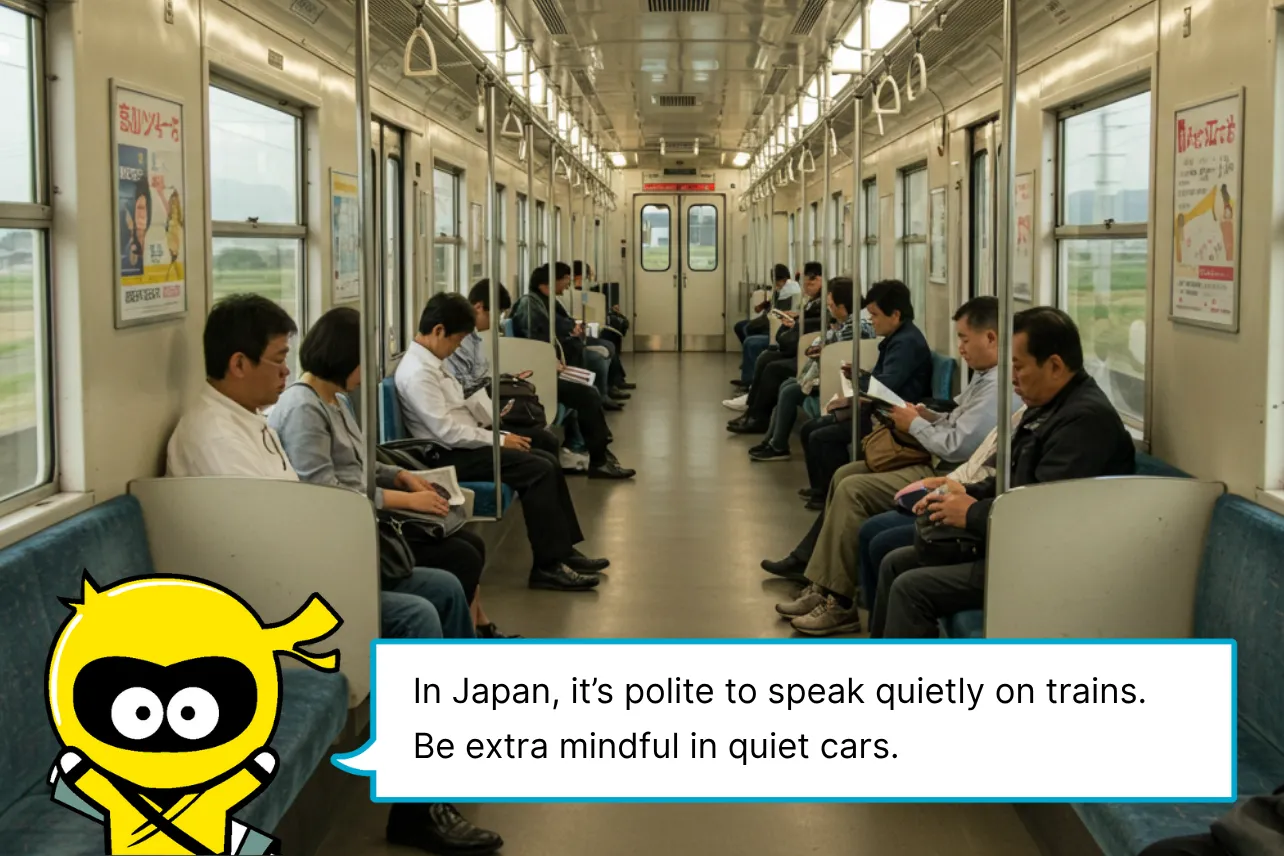

One of the first things many foreign travelers notice in Japan is the surprising quiet inside trains and buses. It’s common to realize mid-conversation, “Maybe we’re talking too loudly…” when everyone around you is sitting in silence. For visitors used to more lively commutes, this cultural difference can be striking.
Why is quiet travel so important in Japan? And why do tourists sometimes stand out when they speak too loudly or spread their luggage across seats? Public transport is part of everyday life in Japan, which makes understanding local manners essential for a smooth trip.
This guide explains why Japanese trains are so quiet, the cultural background behind it, and the basic public transport etiquette every foreign visitor should follow.
Why Japanese Trains Are So Quiet: Cultural Background Explained


Many travelers say their biggest surprise on a Japanese train is, “It’s even quieter than I imagined.” Even during rush hour, few people speak loudly, and music is kept low enough that it doesn’t leak from headphones. This is not just a rule but part of a cultural value: showing consideration for others and believing it’s polite to stay quiet in public spaces.
During the morning commute, hundreds of people can share the same carriage, yet the atmosphere remains calm. If you raise your voice or spread out your bags, you will stand out immediately. While this may feel restrictive at first, the silence allows you to rest, read, or plan your sightseeing comfortably during your journey.
To travel comfortably in Japan, it helps to understand this cultural background. By knowing the “aesthetics of quiet” valued by Japanese people, you avoid problems and gain a richer cultural experience. When planning your trip and considering costs, remember that a smooth, stress-free ride is an essential part of travel value.
Basic Public Transport Etiquette Every Traveler Should Know
The most important rule for foreigners on Japanese trains and buses is simple: stay quiet. Avoid loud conversations, switch your phone to silent mode, and do not take calls. Many travelers have stories of speaking too freely and suddenly feeling the stares of other passengers—an awkward experience that can easily be avoided with a little awareness.
Pay attention to how you use your seat and store your luggage. Large suitcases should not be left on seats; instead, use designated storage areas or place them neatly in front of you. Taking up too much space during crowded times can cause conflict and unnecessary stress, sometimes even extra costs if you need to rebook or move to a reserved luggage area.
When to Lower Your Voice on Trains and Shinkansen


Voice volume is more important in Japan than many travelers expect. During rush hour or in quiet cars, even slightly loud conversations echo and draw attention quickly. It’s best to keep your voice at a whisper.
The Shinkansen (bullet train) offers different seating options. Reserved and Green Cars are designed for quiet travel. Although tickets cost more, they are highly recommended if you value peace and comfort. In contrast, unreserved cars or tourist trains can be livelier, making it important to adjust your tone depending on the setting.
Talking is not banned, but “whisper-level volume” is the standard. Following this small etiquette tip helps you blend in with locals and ensures a smoother travel experience. This simple adjustment is one of the best recommendations for a higher-quality trip.
Shared Customs of Quiet Travel on Buses and Subways
The quiet rule applies not only to trains but also to buses and subways in Japan. Phone calls should be avoided, and conversations are kept to a minimum. One visitor recalled chatting happily with a friend on the subway, only to realize that their voices were the only ones echoing in the car. Embarrassed, they quickly lowered their volume.
Whether on a local bus or a crowded subway line, this shared custom makes commuting more pleasant for everyone. Respecting these habits shows cultural sensitivity and helps tourists enjoy smoother daily travel.
You might be interested in this
The Japanese Value of Quietness and What Travelers Can Learn
In Japan, quietness is deeply tied to courtesy and aesthetics. It’s not only expected on trains and buses but also in places like temples, shrines, and hot springs. One traveler admitted it felt restrictive at first, but after a few days they found the calm atmosphere reassuring and even relaxing.
For Japanese people, quiet means both showing respect to others and creating comfort for oneself. Tourists who understand this value avoid trouble and gain a deeper appreciation of Japanese culture. The key lesson: avoid loud voices and unnecessary noise, and you’ll experience a more authentic side of Japan.
Conclusion: Enjoy Stress-Free Travel with Japanese Manners
Japan’s public transport is famous for being “surprisingly quiet.” By following simple rules—keeping your voice down, managing luggage properly, and observing rush hour manners—your trip becomes more comfortable and stress-free. Understanding this cultural value of quietness is more than just following etiquette; it’s an opportunity to connect with Japanese society on a deeper level and enjoy your journey to the fullest.




